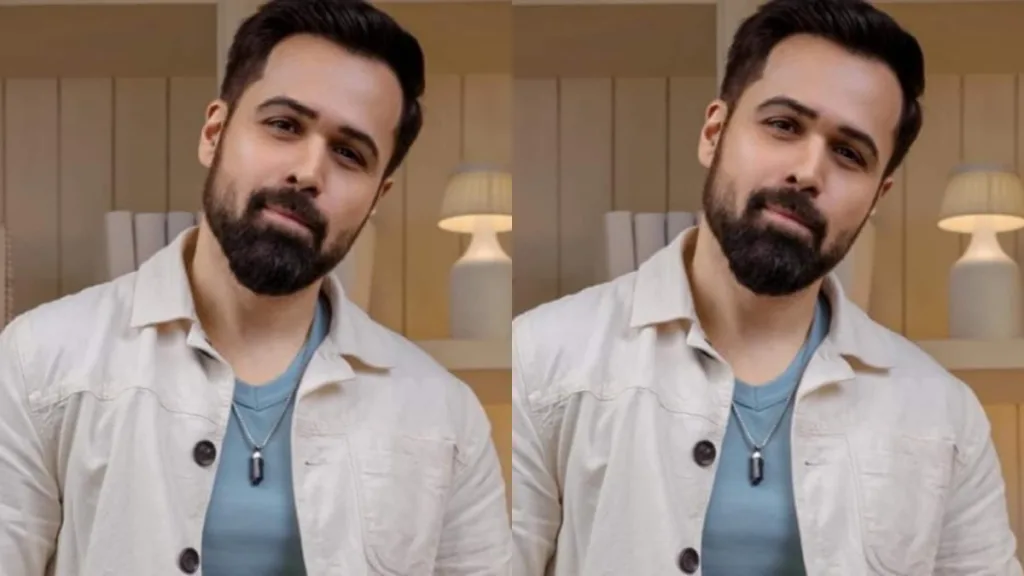In a candid interview about his upcoming courtroom drama Haq, actor Emraan Hashmi opened up on themes of gender bias, dignity and patriarchy—offering sharp commentary on how certain mindsets still cost women more than they realise. The actor, who plays a lawyer in the film inspired by the historic Shah Bano Case, stressed that while the story addresses women’s rights in Muslim personal-law contexts, its reach extends far beyond any one faith or community.
Emraan explained that Haq is rooted in the idea of a woman’s voice and her right to dignity. “It’s a film about equality, about a woman’s right to be heard and to be respected,” he told ANI. “And then, if you introspect, you will find that the same biases men carry in a patriarchal society—‘It’s my world, I will do whatever I can’—cost a woman her dignity. That’s what the film reflects.”
Rather than pointing fingers at one religion or group, Emraan emphasised that these issues are universal. “This is for men as well,” he said. “If a person grows up in a certain environment and is conditioned in a certain way, that conditioning is real. But just because you grew up with it doesn’t mean it’s correct.”
The film stars Emraan as Ahmed and actor Yami Gautam as his estranged wife, a character inspired by Shah Bano Begum, who in 1978 sought maintenance from her ex-husband and triggered a landmark legal verdict. Emraan noted that while the setup is drawn from Muslim personal-law history, the questions the film poses—about maintenance, dignity, and fairness—apply to all men and women everywhere.
One of Emraan’s most striking remarks emerged when he addressed the mindset underlying many gender-based injustices. He said the idea that “I can do whatever I want”—when wielded by men—ends up costing women their dignity. “That is the reflex patriarchal response: I have the power, the choice, so I’ll decide what can happen,” he said. “And in that, the suffering of the woman becomes invisible.”
He also described Haq as a film that doesn’t demonise men or any community—but instead styles itself as a balanced dramatisation of how societal norms shape lives. “We are not judging anyone,” Emraan reiterated. “Ahmed also has his conditioning, his viewpoint. We show that. Then it’s up to you when you step out of the theatre.”
In casting the film’s message, Emraan stressed the importance of treating women as full characters—not just victims or symbols. “When you view women as someone whose dignity is negotiable, or whose needs can be ignored, you grow a society of imbalance,” he said. “My role is to represent the story. And in doing so, hope the audience asks: Why was this allowed?”
Haq releases in theatres on 7 November 2025 and is directed by Suparn S Varma. The film’s supportive cast includes Vartika Singh, Danish Husain and Sheeba Chadha, among others.
About Emraan Hashmi
For Emraan, who has long played roles in thrillers, romances and emotionally intense dramas, Haq represents a purposeful shift—toward movies with social intent and reflection. In the interview, he said that while entertainment is important, films that capture systemic issues in an accessible way have a different kind of responsibility. And, by tackling ideas about agency, rights and dignity, he hopes Haq will spark conversation rather than simply entertain.
Even as the industry continues to diversify in its storytelling, Emraan’s remarks underscore that the struggle isn’t over. His emphasis on dignity—specifically how men’s unrestrained power can erode it—provides a sharp lens through which to view reality. “If you stop saying, ‘I’ll do whatever I want,’ and instead ask, ‘Is this fair?’ you shift the ground,” he observed.
In a landscape where gender and rights intersections are being reconsidered, Emraan Hashmi’s commentary arrives at an apt moment. His willingness to talk about male conditioning, female dignity, and the narratives we accept or reject invites viewers—and society—to ask whether we are still in a world where one person’s ‘whatever I can’ puts another person’s dignity at risk.

